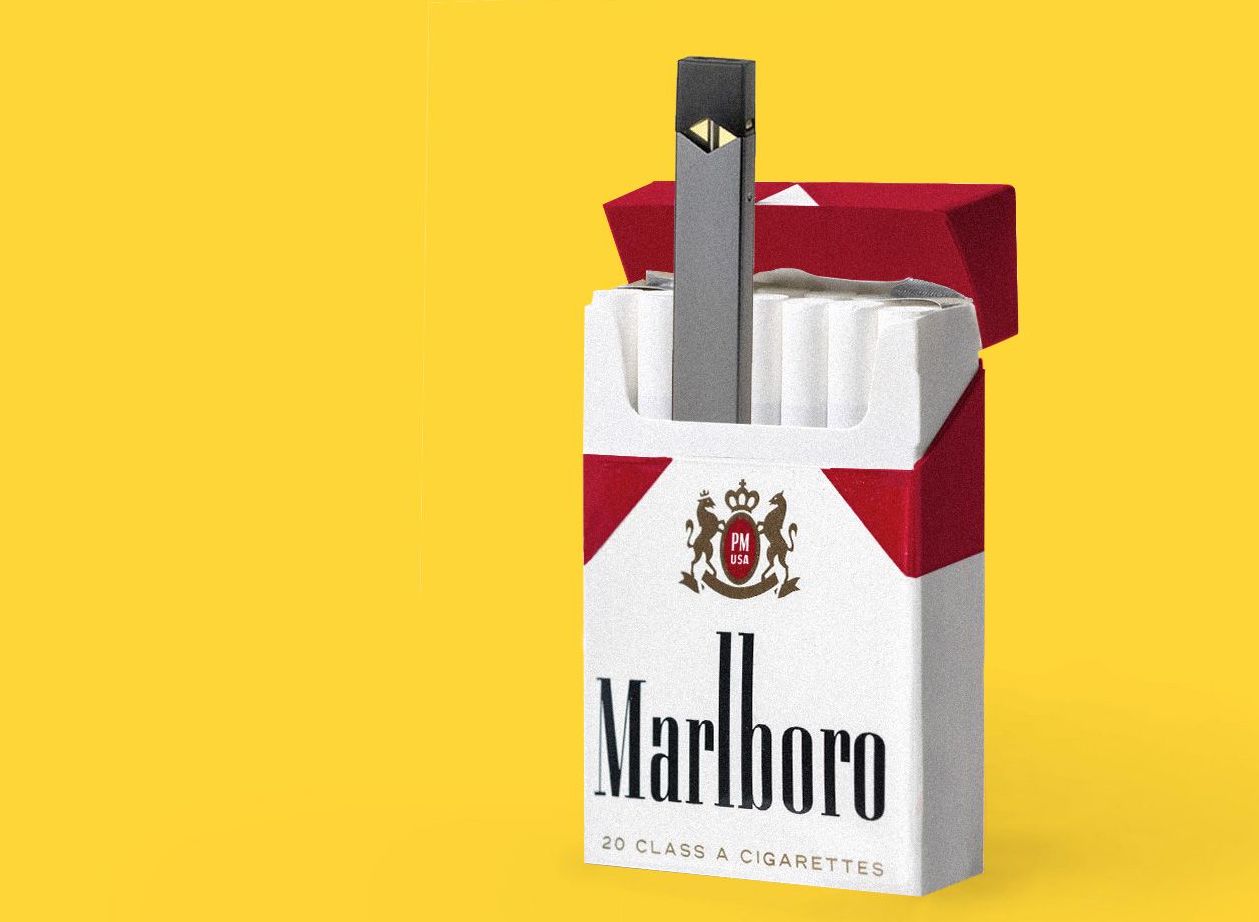On Nov. 15, the Food and Drug Administration (FDA) officially announced plans to limit the sale of sweet-flavored e-cigarette products, including Juuls and Juul pods, in places where people under the age of 18 can easily purchase them. This push comes from the number of teens under the age of 18 who have been vaping and using Juul pods, inevitably becoming hooked on nicotine. The FDA places a lot of the blame for this epidemic on the flavors for vaping devices “tasting like candy” and therefore appealing to young people.
Since the FDA made this announcement, people have been freaking out about not being able to get their Juul pods anymore. What people are failing to understand, though, is that this proposal does not mean flavored Juul pods and other flavored nicotine products will be completely banned in the United States. It simply means it will be more difficult for underage people to obtain them. For example, many flavored products are sold in gas stations and convenience stores. Anyone, regardless of age, can walk into one of these stores. Because of this, the only flavored products that will be available in gas stations and convenience stores are menthol, mint and tobacco.
However, vape shops and stores of that nature typically require patrons to show their identification upon entrance to the store. As long as an individual has identification proving they are of the legal smoking age, they will be permitted to enter. These shops will still be able to sell sweet-flavored e-cigarette products, such as mango, fruit medley and crème brulee Juul pods to customers of legal age. Websites like Juul’s official page will also still be able to sell their flavored products online as long as they have adequate age verification measures in place.
I believe this is mostly a smart move on the part of the FDA. People under the age of 18 (or 21 depending on which state you live in) should not be exposed to nicotine products, especially because people under these ages are not done physically developing. The human brain does not stop developing until the age of 24, so any exposure to nicotine, alcohol or drugs can ultimately make it considerably more likely that someone under age will become addicted to one of these substances.
According to the National Youth Tobacco Survey released by the FDA, 3.6 million high school and middle school students are currently using e-cigarettes. This staggering number is even more concerning when you look at the number of young people who were using e-cigarettes only a year ago: 2.1 million. That’s a 78 percent spike within one year. So, of course the FDA feels as though they need to intervene and put a stop to the number of young people who are essentially becoming addicted to nicotine. It’s a national health concern.
However, my personal concern lies with the young people under the age of 18 who are already addicted to nicotine due to vaping for an extended amount of time. When they no longer can get their hands on Juul pods or flavored nicotine products, they will need to find another way to fill the craving their new-found addiction requires. Quitting an addiction is something that even full-grown adults find to be extremely difficult — imagine how difficult it will be for teenagers who haven’t even finished going through puberty yet. Most teens will likely find people who are of age to buy the products for them, or worse, turn to cigarettes. This doesn’t mean the FDA should just continue to allow the promotion of tobacco products to underage people, but it will have a major effect on them and their health.
Such reasoning all brings to bear the question: If certain Juul pods can no longer be sold in gas stations because of the store’s ease of access, why can they still carry cigarettes? Is it because cigarettes only taste like tobacco or menthol and are not as appealing to young people? Perhaps, but I think if one type of nicotine product is banned from gas stations and convenience stores then all types of nicotine products should be limited in these locations as well.
Also, let’s talk about the various flavors of alcohol that are sold in gas stations and convenience stores. From 4 Lokos to Twisted Teas, everyone is exposed to at least the idea of flavored alcohol, but I see no attempt to limit or ban these products in these types of stores. And yes, gas stations do require identification to sell alcohol/tobacco products, but in my experience, many gas station employees do not care to I.D. people if they look at least 17 years old. Alcohol is arguably just as addictive as tobacco products and just as much of a health and safety hazard.
In the end, the FDA is making a good decision in terms of attempting to limit young people from obtaining flavored nicotine products. For the sake of their health, young people should stay away from these types of things. However, I am a bit confused as to why cigarettes and flavored alcohol are still permitted to be sold in gas stations and convenience stores if the issue lies with the enticing flavors these products exhibit. Perhaps in the near future these products will be more limited as well — only time will tell.














